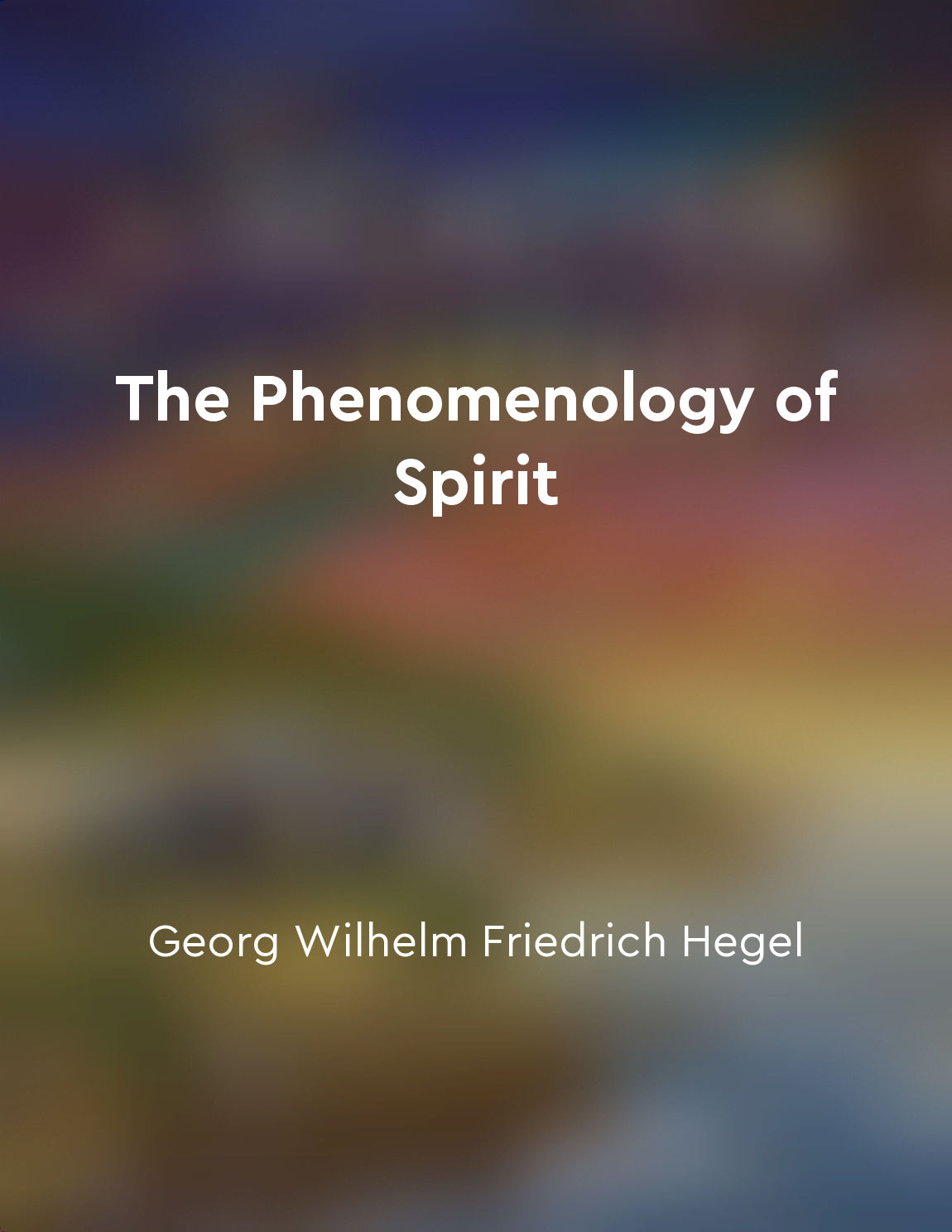The unfoldment of consciousness from "summary" of The Phenomenology of Spirit by Georg Wilhelm Friedrich Hegel
The development of consciousness is not a simple linear progression, but rather a complex and intricate process. It involves a series of dialectical movements in which consciousness encounters contradictions and conflicts that ultimately lead to a higher level of understanding. Each stage of this development builds upon the previous one, incorporating and transcending it in order to move towards a more complete and comprehensive form of consciousness. At the beginning of this process, consciousness is in a state of immediate, unreflective awareness. It is not yet aware of itself as a distinct and independent entity, but rather is immersed in its immediate experiences and perceptions. As consciousness begins to reflect upon itself, it becomes aware of its own limitations and contradictions. This self-awareness leads to a sense of alienation and estrangement from the world, as consciousness realizes that it is not fully integrated with its surroundings. This sense of alienation drives consciousness to seek resolution and reconciliation with the world. It embarks on a journey of self-discovery and self-realization, in which it confronts and overcomes the various obstacles and challenges that stand in the way of its development. Through this process of struggle and conflict, consciousness is able to transcend its previous limitations and achieve a higher level of self-consciousness.- Characterized by a continual movement towards greater self-awareness and self-realization. It is a process of becoming, in which consciousness is constantly evolving and transforming in response to its changing circumstances and experiences. Ultimately, the goal of this process is to achieve a state of absolute self-consciousness, in which consciousness is fully aware of itself and its place in the world.


